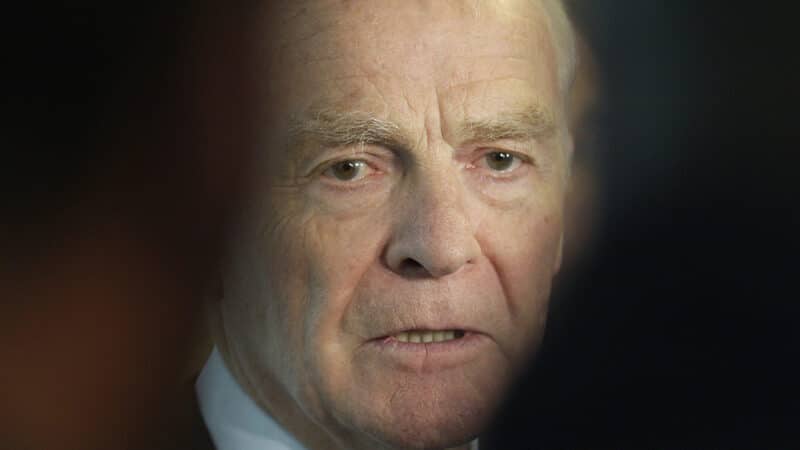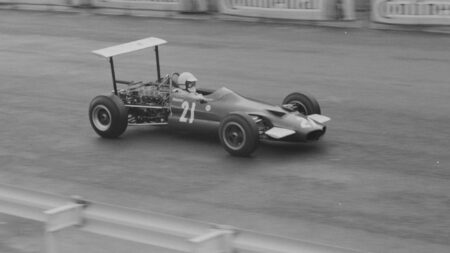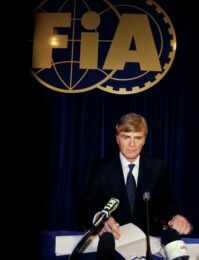April was a significant month for him, and not only because he was born on April 13, 1940. His first involvement in motor sport was as a driver — and, although he never raced in a championship Formula 1 grand prix, he entered one non-championship race that could be classified as of F1 status, on April 13, 1969, his 29th birthday. The 1969 Gran Premio de Madrid was run over 40 laps of the then-new Jarama circuit, which measured just 2.115 miles (3.404km), and the sparse eight-car field included two F1 cars, two F2 cars, and four F5000 cars. Mosley qualified his F2 Lotus 59 fourth and retired it just before half-distance with a faulty injector trumpet. It was not the most famous April race he ever entered, for on April 7, 1968 he drove an F2 Brabham BT23C to ninth place in the Deutschland Trophäe. But no-one noticed because that was the race in which the great Jim Clark spun his F2 Lotus 48 and was killed as it smote then ricocheted off the trees that lined the super-fast Hockenheim circuit.
As a driver, Mosley was nothing special, which evident truth he came to terms with quickly and without rancour. What followed the abandonment of his in-cockpit career is well known: in a nutshell he co-founded the March F1 team; he ran FOCA (Formula One Constructors’ Association) with Bernie Ecclestone; he flirted with then relinquished the idea of becoming a Conservative MP; he was elected FIA President, which position he held for 16 years, from 1993 to 2009; he did a lot to improve motor sport safety, supporting Professor Sid Watkins, the FIA’s legendary safety and medical delegate; and, via his and the FIA Foundation’s assiduous promotion of the innovative Euro NCAP (New Car Assessment Programme), he saved thousands of motorists’ lives.
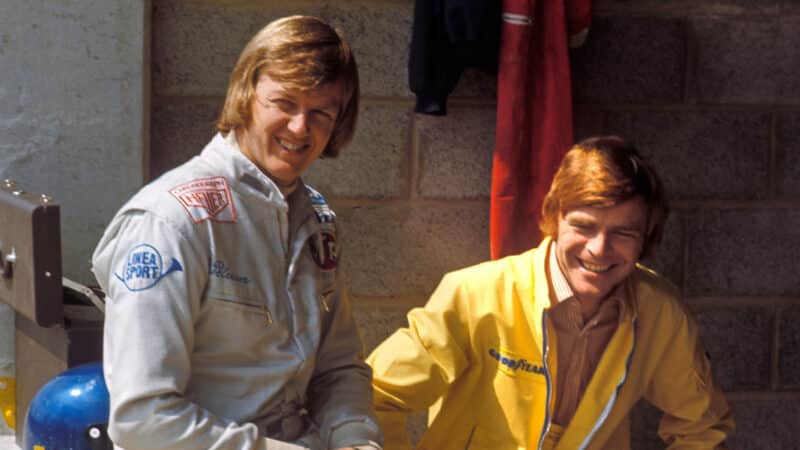
Mosley with March driver Ronnie Peterson in 1972
Grand Prix Photo
Mosley was as much sinner as saint, but this column is not going to be a mini-biography, for he lived too long and did too much — good and bad — for his story to be told in anything shorter than a decent-sized book. I hope someone will write exactly that, not least because his own offering, The Autobiography: Formula One and Beyond (2015), was surprisingly dull, for it contained little of the wit and devilment that made personal interactions with him so compelling.
I knew him quite well. As a journalist I interviewed him often, and I always enjoyed the intellectual jousting contest that such encounters tended to become. In one such interview, about 25 years ago, I finished up with a few pithy questions, to which I asked him to reply with one-word or at least one-thought answers. One of them was “Whom do you most despise?”
I admit that, as I asked it, I was wondering whether he might answer “Ron Dennis” — because the animus between them was intense at that time. But no. “Karel Van Miert [the then European Commissioner for Competition],” he replied.
“Oh really? I was wondering whether you might be going to plump for Ron Dennis,” I said.
“Oh no,” he explained, “I don’t despise dear old Ron. On the contrary, I pity him. Actually don’t write what I said about Van Miert in your article.” He almost spat the word ‘pity’. I did not mention Van Miert in my piece, but I can report Mosley’s opinion of him a quarter of a century after he spoke it, since both men are now dead.
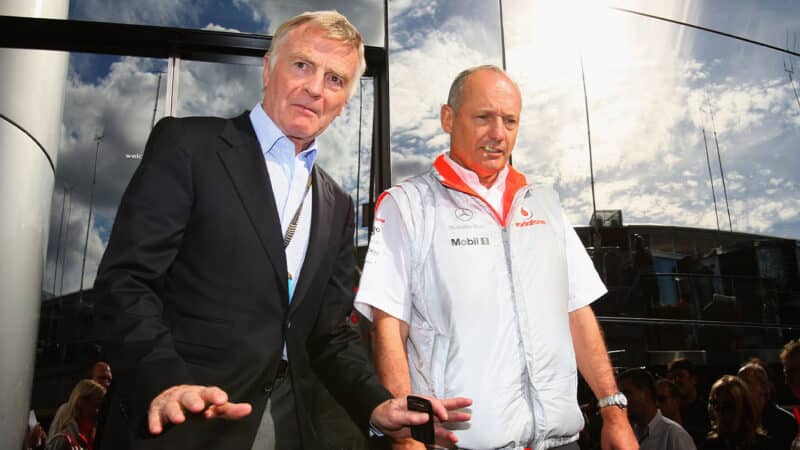
Drawn together from opposite ends of the social spectrum, Max pitied Ron, and Ron despised Max
Mark Thompson/Getty Images
Van Miert is probably of only incidental interest to most Motor Sport readers, however. More intriguing is why Mosley would pity Dennis. Ron was then, and is still, the most successful team principal in F1 history. He was then, and is still, phenomenally wealthy. Even if you dislike him, as some people do — but not I, for I enjoyed working closely with him at McLaren between my arrival in January 2008 and his departure in November 2016 — the word ‘pity’ is an extraordinary one to choose to describe your antipathy to him.
I think Max — who was related to not only Sir Winston Churchill but also Queen Elizabeth the Queen Mother; who was expensively educated and taught to hunt and shoot in England, Ireland, France and Germany before he went up to Oxford; whose father was Sir Oswald Mosley, a fascist baronet; and whose mother Diana was one of the famous and aristocratic Mitford sisters — never came to terms with the reality that a working-class lad from Woking could have left school at 16 to study motor vehicle engineering at a technical college, could have found work as a mechanic, and yet, supercharged by unshakable ambition, could have parlayed that inauspicious start into success on a scale grander than that achieved by any F1 team principal before or since.

